When you grow vegetable plants in the soil of your garden then there must be a shortage of nutrients in the soil. You have to add amendments to improve the quality of the soil.
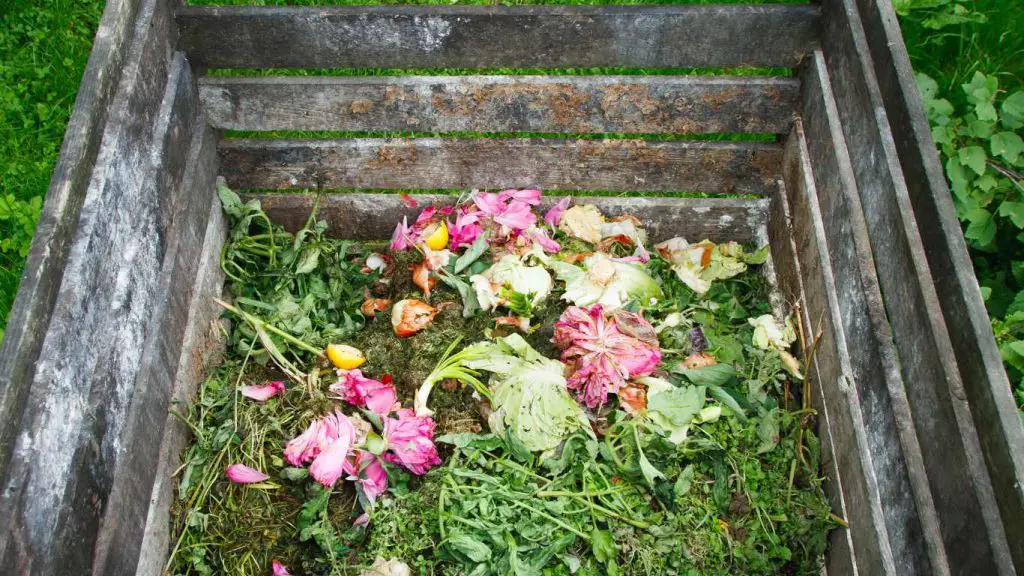
When your vegetable plants receive essential nutrients their growth will improve and you will get a regular supply of vegetables for your kitchen.
What Is Compost?
Compost is an organic material that is made from leaves, kitchen scraps and plant remains. It contains all the desired nutrients that plants need. Its application improves the soil’s structure and provides a healthy environment for your vegetable plants.
When you grow your vegetables then you need them fresh and healthy. This is possible when they gain all the necessary nutrients.
How To Make Compost In Easy Steps?
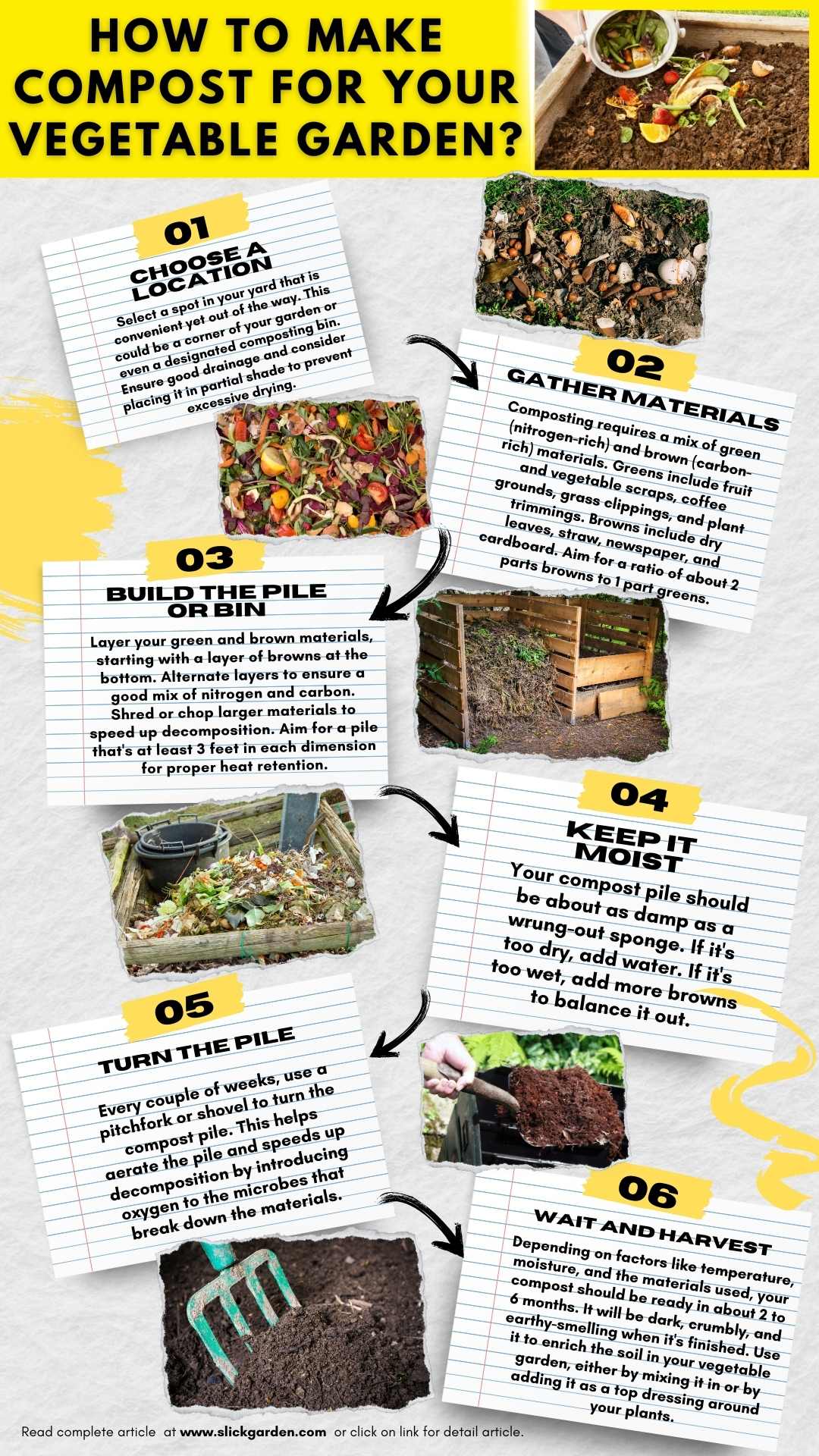
You can also buy ready-made compost from a local nursery or any gardening Store but if you are willing to make it at home then this is the right article that you are reading. Following are the simple and easy steps for making compost at home.
- Collect the material for making compost such as garden cuttings, fruit scraps, vegetable scraps, coffee grounds, chicken manure, stale bread, and egg shells. Avoid using bones, meat and other dairy products in your compost pile. If you use these materials they will not compost easily and insects will be attracted by them.
- If you have large materials such as plant stems or branches then chop or grind them into small pieces. You can also add weeds but make sure they don’t have flowers and seeds.
- When you collect all the material for making compost, the next step is constructing a pile. Make sure the height of the pile must be three to four feet so it can hold the heat for decomposition. This is the ideal size of the pile because it can allow sufficient to enter. You can easily make a compost pile by using a cylinder of welded construction wire. The other option is using wooden frames that are covered with chicken wire in a cube shape.
- The location of your compost pile must be flat, valid and shady. Before composting you must till or dig the compost pile in the soil because it will help in drainage and allow worms to enter into the pile for the decomposition process.
- First spread a 6 to 8 inches deep layer of plant debris such as grass clipping, weeds or leaves in the bin. Before adding the next layer you can add a few hands full of fresh topsoil. Topsoil contains microorganisms that help in the decomposing process.
- The second layer contains chicken manure or you can also use nitrogen-rich fertilizer. You should use a small amount of manure or commercial organic nitro fertilizer.
- Now the next layer contains kitchen scraps. You can add a layer of one material at a time.
- For water to penetrate, you must make the top of the pile slightly concave. You have to keep the compost pile moist but avoid making it soggy. If there is rainfall, cover the compost pile with a plastic sheet or trap.
- Your compost pile will decompose easily if you turn it in every 3 to 4 weeks. It will help to discourage odour and flies. The temperature also plays an important role so you have to maintain the internal heat between 140 to 150 degrees Fahrenheit. A compost thermometer will help you to monitor that temperature.
- When the material you use in the compost pile decomposes beyond recognition then you can use it. The decomposition process will take 1 to 3 months. If the temperature is high then this process will become faster.
Related Articles:
- What Is Good For Using As A Compost Activator?
- How To Make A Diy Compost Bin
- 9 Best Compost Bins
- What To Or What Not To Compost?
How To Mix Compost Into The Soil For Your Vegetable Garden?
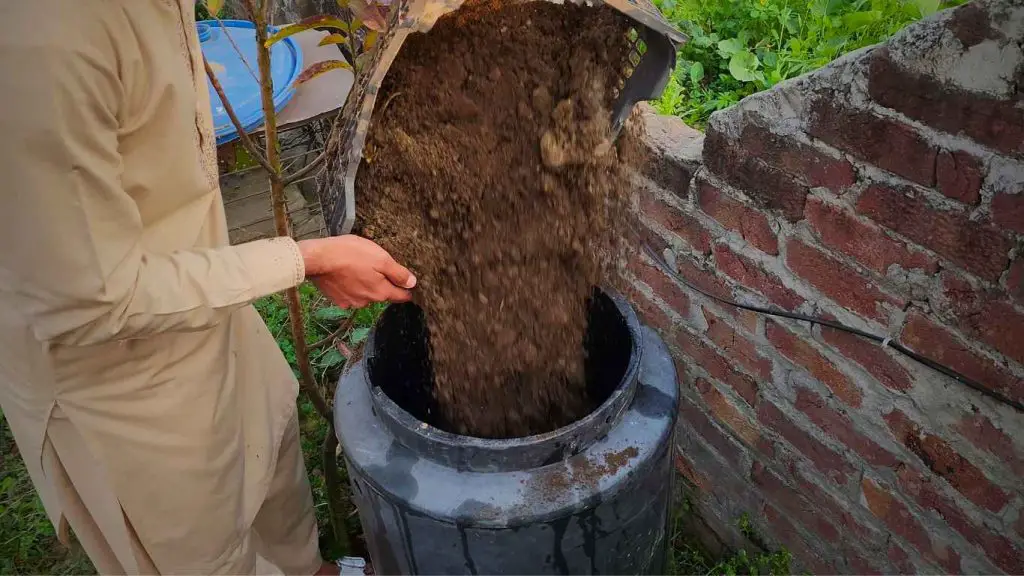
The mixing of the compost into the soil depends upon the growing area you have for your vegetable garden. The quality of the soil also affects the quantity of compost you are going to use in your vegetable garden.
Before mixing the compost you must carefully examine the structure and the type of the soil.
LOAMY SOIL
If the soil of your vegetable garden is loamy then there is no need to eat too much compost. It is better to spread a layer of compost over the top without disturbing the roots of your plants.
Make sure you are spreading the layer of compost a few inches away from your favorite vegetable plants because the roots and stems of the young vegetable plants easily burn in that case.
CLAY SOIL
This is a very challenging type of soil. To improve the structure of the soil you have to incorporate the compost. This way of mixing compost into the soil will take your time.
When To Add Compost To The Vegetable Garden?
You can add compost to the vegetable garden many times during the growing period. The ideal time for adding compost is in spring two weeks before planting your favorite vegetable plants.
It is better to amend the soil with high-quality compost that you made at home. A layer of compost will boost the amount of nutrients in the soil. The homegrown veggies will grow stronger and healthier after receiving the right dose of compost.
Besides spring you can add compost when the fruit is beginning to grow. When your vegetable plants start producing fruits they need a lot of energy and nutrients to encourage the new growth.
If you are planning to add compost in the autumn then the soil will get more time to absorb nutrients. This is the time when most gardeners are not growing vegetables because of the harsh winter.
Spring will be a busy time in vegetable gardens so it is better to add soil amendments in the fall. If your compost is not fully mature then you can also use it in the fall as the organic matter is still decaying.
If you do so in the spring then it can interfere with the growth of young plants. Gradually when compost is broken down then the structure of the soil will be improved and you will get the benefit in the spring when you start sowing and planting.
Do You Put Compost On The Top Of The Soil Or Mix It In?
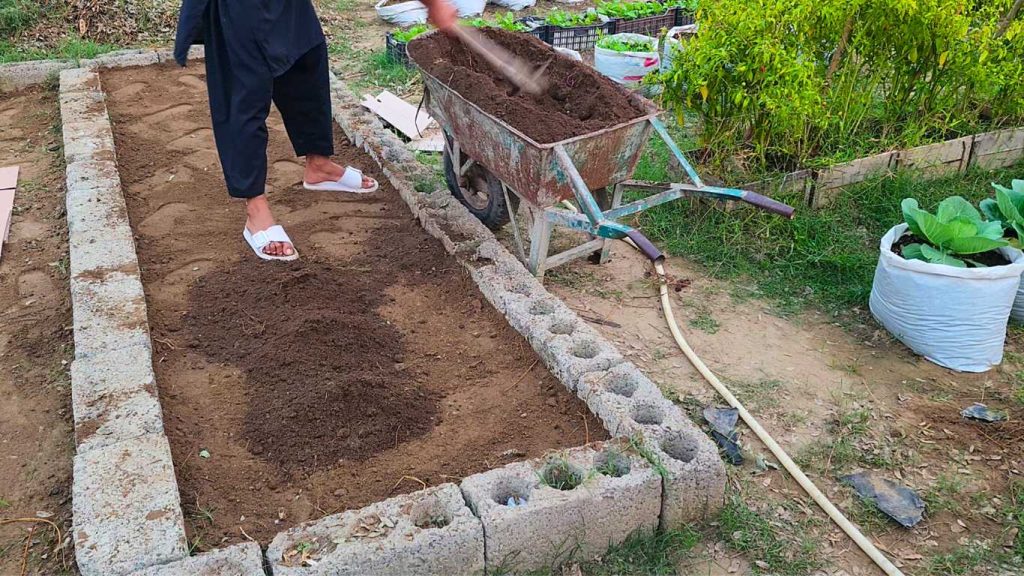
The best and easiest way of using compost is to sprinkle it on the top of the soil in your vegetable garden. This will not only help to amend the soil but also control the growth of weeds around your vegetable plants.
A 1-inch layer composed on the top of the soil works best. As time passes the soil becomes more healthy after the addition of missing nutrients.
In case the topsoil of your vegetable garden is compacted then you can’t spread the compost on the top. In such a situation, you have to use a rake to loosen the soil.
At this stage sprinkle 1 inch layer of compost and mix it in the soil with the help of your hands. Soon the soil will become more nutritious for your vegetable plants.
Ratio Of The Compost To The Soil In Raised Bed
When you are growing your vegetable plants in the raised bed, you can easily maintain the fertility of the soil which is not possible when you are growing plants in conventional ways.
For best results, you can mix compost with soil to make rich growing media for your vegetable plants. When you do this, the structure of the soil is improved and it can hold more water.
The quality of the compost is very important if you are going to mix in the soil. It depends on the material you are using to make it. It also affects the specific ratios of compost to the soil.
You can use 30% compost, 60% topsoil or existing soil, and 10% perlite junk or vermiculite. This can be a good ratio for your vegetable plants if the compost is made from plant material.
In case the amount of manure is high in the compost then it contains more potassium and phosphorus so you must reduce the percentage of compost to make a balance of nutrients.
If you want to grow your vegetable plants in 100% compost then most of the gardeners experience that their plants do not grow well. In such cases, there is not a good balance of nutrients for plants.
For instance, the presence of nitrogen in the compost is used by plants but phosphorus may interfere with the uptake of other nutrients. The salt level of such compost is so high that it contains manure.
If you are using such a type of compost then it means that you are growing your vegetable plants directly in the manure.
Sometimes that happens that compost completely dries out in such a situation the water will not absorb it. Dry compost in the raised bed can repel water and create a soggy environment for vegetable plants.
You know standing water will encourage the spread of different fungal diseases and root rot.
Can You Add Compost In The Vegetable Garden After Planting?
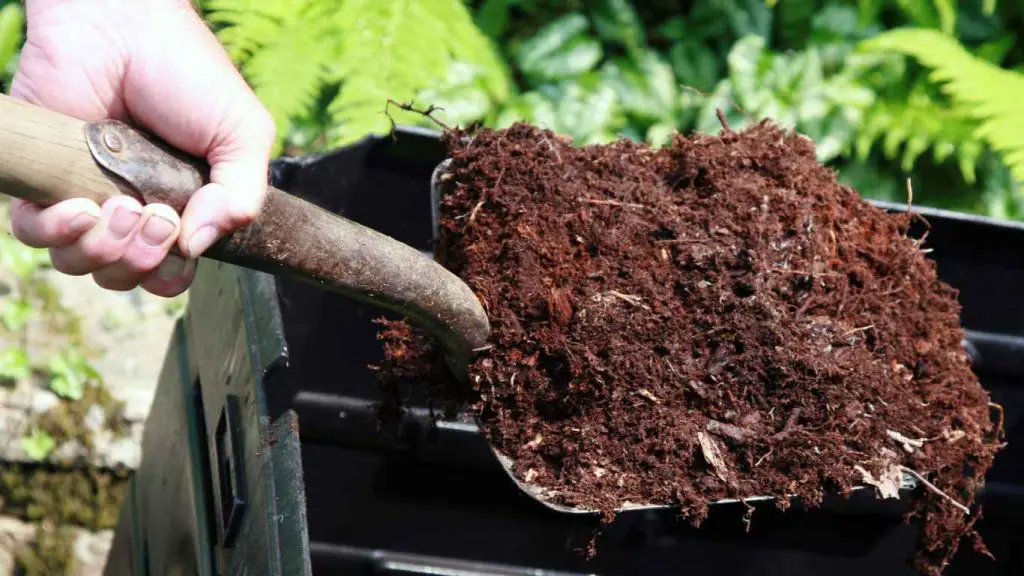
As the plant grows there is a deficiency of nutrients in the soil to cover up this shortage you can add more compost. When you add compost to the existing plants then it will break down and feed them slowly.
The main benefit of the application of compost is it stops the growth of weeds. Weeds are a big problem for your vegetable garden. They steal nutrients from the soil. Now the question arises what is the best time for adding compost in the vegetable garden after planting?
Vegetable plants appreciate the addition of compost. Make sure you are using well-rotted compost. The application of compost depends upon the characteristics of the soil.
It is better to add compost twice during the growing season. Especially when you see your plants are growing quickly then you can apply a 1/2 inch layer around the base of your favorite vegetable plants.
With the help of a rake, you can mix 6 inches of the top layer of soil with the compost. This act will help to aerate the soil. Now the last step is watering your vegetable plants so the nutrients can easily reach deep in the soil and help to feed your plants.
Related Articles:
- Is Multipurpose Compost Suitable For Vegetables?
- How To Make Compost Tea At Home?
- What Is Good For Using As A Compost Activator?
Benefits Of Adding Compost To Your Vegetable Garden
Following are the benefits of adding compost to the soil.
- It will improve the structure of the soil. If the soil in your vegetable garden is very compacted then you can make it looser by adding nutrients.
- The water-holding capacity of the soil will improve when you add compost to it. As you know water is very important in the growth of many plants. The consistent supply of moisture will play an important role in the growth of plants.
- Another benefit of compost is that it will improve the air circulation in the soil.
- The nutrients present in the soil are able to wash away in heavy rain. Compost helps to maintain the nutrient level in the soil for your vegetable plants.
- Compost easily breaks down in the soil and encourages the microbes and earthworms to decompose the organic material.
